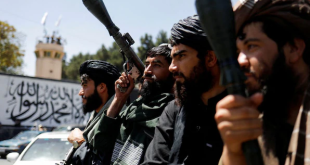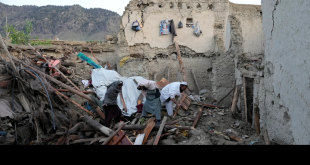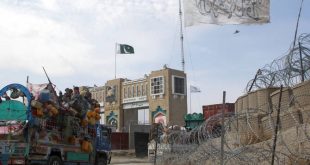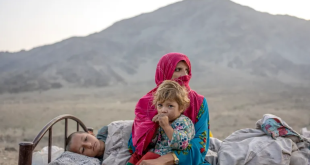Aisha Khurram
It was 06:00 o’clock of a cold and cloudy morning, Dec 11th-2019 when I packed my backpack and suitcase to leave Kabul and begin my long solo trip to Berlin and then to the NYC.
I landed in Berlin at 05:30 late evening, then went out for dinner, the city was like a giant museum of art, history and culture filled with historic monuments and ancient cathedrals brightened by a full moon and street lights, everybody was rushing to Christmas market and enjoying their cold, windy Christmas nights in peace.
The next morning on Dec 12th we walked to Bundestag (the lower house of German parliament) to meet with south Asia parliamentary group. I first briefed them on the situation in Afghanistan and Afghan youth’s perception on the current and future course of our country. Some parliamentarians were supporting Germany’s engagement in Afghanistan, some of them were opposing it and some of them were seeking justification for the necessity of their engagement. They were eager to hear from an ordinary Afghan citizen of her perspective about Germany’s engagement in Afghanistan, to find whether it is necessary for them to continue their engagement or not.
When our meeting was over with Parliamentarians, we walked to Friderich Ebert Foundation while enjoying a beautiful weather, I visited some of the most important historical monuments such a Brandesburg gate a national symbol of peace and unity in Germany, Charlie checkpoint, Gendarmenmarkt, Glienicke bridge and national park along the way to the meeting places, the elegance, simplicity and tranquility of the city blew my mind.
At 01:00 PM I had an interview with international politics and society journal at FES building, questions were mainly focused on the progress in the peace process and Afghan youth’s expectation from a possible peace agreement and why Afghan youth’s engagement and inclusion in the peace process is important for guaranteeing a sustainable peace.
When I wrapped up my meeting and interview at FES I rushed back to Bundestag Building to meet another German MP Aydan Ozguz at her office, since she was familiar with the Afghan culture, problems and politics, she mainly focused on Afghan youth’s challenges, needs and demands at the current situation of our country and I pointed out some of the very basic rights as primary and urgent needs of Afghan youth which we’ve been fighting for over the past 18 years, and she also mentioned that most refugees coming to Germany are young Afghans, some of them were deported by Federal government and sent back to Afghanistan.
At the end of our meeting we took a picture and she asked whether I’m interested to have a tour of Bundestag Building I enthusiastically replied: YES! Our tour guide told us, this parliament’s door are always open to all German people without any exception and MPs are responsible to respond and connect with people through email whenever they’re needed and I’ve also got to see from a far distance the biggest and most beautiful library of Bundestag.
Germany is a democratic, federal parliamentary republic, where federal legislative power is vested in the Bundestag (the parliament of Germany) which demonstrate its unlimited power and influence on national and international affairs/policies so if the Federal government wants to continue its engagement in Afghanistan the government needs to convince parliament members and get their support for the mission.
At the end of the day, late evening at 05:00 PM we rushed to meet Mr. Markuz Potzel (special representative of the Federal republic for Afghanistan and Pakistan) at the ministry of foreign affairs.
During our meeting I’ve asked Mr Potzel about the ongoing peace talks in Doha-Qatar that he has been attending regularly on behalf of the German government he assured us of the progress being made between US and Taliban. He added: “ Germany continuously emphasize on Afghan women’s substantive inclusion in the peace process” he also told me that on behalf of the younger generation we also encourage political leaders (some warlords) sons and daughters to participate and we’ll consider your request and put the idea of including young Taliban in the peace process at the table.
As I visited the Federal foreign office I got to experience a very simple, normal and friendly environment among their diplomats.
On Dec 13th during an online video conference I got to meet and converse with 3 German youth representatives to the united nations, in fact I had to meet two of them on September this year at the united nations but unfortunately I missed the chance to attend the economic and social council, since I’ve been selected on the 7th of October 2019, anyhow, in my last day of visit to Berlin I got the opportunity to meet them, all of them shared their experiences with me, in addition, I asked them about the main problems that German youth are currently facing, they responded: “ climate change, is the biggest and most serious problem we are facing right now” at the end they’ve given me few suggestions and recommendations as experienced youth representatives which really helped me later on during my visit to UN. My meeting with German youth representatives was extremely productive, filled with positive vibes and friendly conversations.
Usually, we were either walking to get to our meetings or using public transportations, I could rarely see people using their personal vehicles.
Germans are deeply concerned about the climate change and are trying to emit less carbon dioxide which in consequence made their environment clean, green and breathable.
In Dec 15th– 2019 I’ve landed at JFK airport-NYC United States of America. It was a cold, cloudy late evening, our mission at the United Nations sent us a vehicle to pick us up from the airport and drop us at the hostel.
The next morning on 16th of December, I first met with Adela Raz, Afghanistan’s permanent representative to the United Nations, we exchanged ideas and discussed about the Afghan youth representative program, I received my UN pass from their office then headed towards the UN building.
It was 03:00 o’clock in the afternoon when United Nations Security Council session started. The 8687th meeting presided by the United States permanent representative, adopted its agenda on the situation in Afghanistan, at first Mr Tadamichi Yamamoto SRSG and head of the United Nations assistance mission to Afghanistan briefed the council on Afghanistan’s situation and recent political dynamics. I was the second briefer and then our Ambassador to the United Nations (Adela Raz) delivered her speech on behalf of the Afghan government.
In continuation, all council members delivered their statements and clarified their governments’ stance in regards to the Afghan peace process and presidential elections.
Here are some important points that I noted down from UNSC members statements:
Germany (co- penholder of Afghanistan at UNSC): Germany emphasized that the electoral results need to be announced as soon as possible, the German ambassador expressed his grave concern over the increase in civilian casualties Mr. Heusgen reminded the council that Germany is right now the second largest donor and troop contributor to Afghanistan and will continue its engagement as such in the future. Germany emphasized on an inclusive peace process, in particular focused Afghan women’s inclusion and protection of their rights in the peace process and once again he assured the council that Germany is striving to make sure that women’s inclusion will be guaranteed and their rights will be protected.
Indonesia (co-penholder of Afghanistan at UNSC): Indonesian representative assured that: “Indonesia remains fully committed to assisting Afghanistan in restoring peace and normalcy” he added: “we support intra-Afghan peace process that is led and owned by Afghans themselves and to realize this we need continuous support of the regional countries. We in the council, we have to be united in regards to peace in Afghanistan”.
He also expressed concern for the increased numbers of civilian casualties in Afghanistan: “55% of civilian casualties were consisted of women and children, Indonesia is deeply concerned about the continued high numbers of casualties”
He added: “women and Youth’s inclusion is a must in any peace process and Indonesia stand ready to support it”.
Russian Federation:
Russian representative emphasized on few points such as:
- Concern in regards to ISIL presence in Afghanistan.
- Russia’s interest in achieving reconciliation and a subsequent post-conflict settlement in Afghanistan in near future, and Russia’s firm commitment to provide assistance through the Moscow format and beyond.
- Russian Federation fear that delay in electoral results’ announcement may lead to destabilization in Afghanistan.
China:
- China calls for foreign troops to withdraw in orderly and responsible manner, and also called upon all Afghan political parties to resolve their differences through dialogue.
- China is staunch supporter of the Afghan peace and reconciliation process.
- Airstrikes are continuing to increase civilian casualties, terrorist groups still remained active and drugs are still an important source of fund for the insurgent groups.
- China stand readyto work with Afghanistan in a spirit of consultation, cooperation and mutual benefit to strengthen economic cooperation in the region.
United Kingdom:
- Taliban need to commit to concrete reduction in violence as matter of urgency.
- UK always insisted on women’s substantive inclusion in the peace process.
Equatorial Guinea:
- Peace process must be inclusive and Afghan led.
- We encourage Afghan government to continue to include women in all peace processes and ensure that they take a leading role in negotiations.
- Guinea welcome efforts of the Afghan government to improve legal safeguard to eliminate violence against women and girls.
Poland:
- The current situation in Afghanistan could only be resolved through political means.
- Poland supports the persuasion of an Afghan led and Afghan owned peace process.
- Peace process shall not be done at the expense of the rights of women and minorities.
France:
- In order to ensure a lasting peace we need to maintain the gains made in the areas of justice, rule of law and respect for fundamental freedom.
- Protection of Afghan women’s freedom in any possible peace deal is indispensable.
- We also must heed and fully take into account the aspirations of the Afghan youth and the most important aspiration of Afghan youth is an end to violence as well as lasting peace which will require a just and inclusive process based on respect for the rights of all and for basic equality between men and women.
- It is our responsibility in the Security Council to create conditions conducive to peace and security which will make it possible for young people to take charge of their own destiny and together build a better future.
Dominican Republic:
- Dominican Republic believe that the international community including the united nations security council, must play a key role in accompanying the process of building a definitive political solution in Afghanistan.
- The Dominican Republic believes that now is the time to redouble efforts to that end on the basis if the achievements already made.
Cote d’Ivoire:
- All initiative aimed at promoting peace in schools, universities, peace clubs and civil society groups as well as “ peace programs” of most Afghan universities are worthy of support and encouragement.
- Efforts of the international community and above all those of the council must seek to end the deadly violence that will have a lasting impact on the most vulnerable segment of population in particular on women and children.
- We urge the entire international community to maintain their financial support for the humanitarian response plan for Afghanistan.
Belgium:
- Belgium attaches great importance to the voice of young people.
- To build peace and prosperity we are encouraged by the role of young people in that regard.
- Belgium will maintain its commitment to Afghanistan in 2020.
United States:
- We restarted talks with Taliban last month in order to create an environment conducive to negotiations.
- We urge all sides to immediately reduce the level of violence culminating in a ceasefire.
- We call on Afghan government to appoint an inclusive national negotiating team to negotiate with Taliban.
- It is only through the meaningful participation of young leaders and women across Afghanistan that the country will reach its full potential.
As the formal debate on the situation in Afghanistan got over, the president of Security Council invited all council members to join her for an informal consultation to continue discussion. From briefers only head of UNAMA Mr. Yamamoto joined them for the informal consultation, council members were asking him questions in regards to the situation in Afghanistan behind closed doors.
The next morning on Dec 17th, we first headed to UN youth envoy office, we’ve discussed about finding possible means to raise awareness about the 2250 resolution of the Security Council (youth-peace-security) in Afghanistan, since many young people are unfamiliar with it, as I found out in my online survey.
We’ve also discussed the importance of mobilizing young people through social media, which I’ll continue through my #AfghanYouthCall hashtag.
We came to the conclusion that there’s need for case studies to comprehensively implement the 2250 recommendations.
Then I rushed to the UN building to meet German ambassador, Cristoph Heusgen, we discussed about the Afghan peace process, Afghan women and youth’s substantive inclusion and the Federal government efforts to organize intra-Afghan dialogue in Berlin very soon. Mr. Ambassador emphasized that all engaged parties need to make sure that everybody who’s future and fate is at stake in the peace deal is on board and no one is left behind, he also mentioned that Security council will come up with a resolution after the US-Taliban peace agreement. He added, to make women’s substantive representation possible in the peace process, is something that Germany is trying to contribute to. He also mentioned that Taliban women’s inclusion is critical to foster the peace process and ensuring Afghan women’s rights in any possible peace deal.
As soon as we wrapped up our meeting with German Ambassador we rushed to meet Euwot Belgian diplomat who cover Afghanistan’s division at the Belgium mission, as we were discussing the current situation in Afghanistan he mentioned that strengthening the Afghan governments legitimacy is something that UN can actively contribute to realize.
Belgian diplomat on my question on what can we expect from Belgium in regards to peace and Afghan youth’s inclusion in the peace process, added that Belgium is a troop contributor to Afghanistan and will continue to cooperate with NATO and send troops to Afghanistan. He mentioned that UNAMA in Afghanistan can play a key role in the Afghan peace process, if the negotiating parties agree on it.
The next day on Dec 18th we went to meet the Canadian ambassador to UN Richard Arbeiter and his colleague Kristin, they mentioned that their policy for Afghanistan is in renewal and Canada is trying to have a feminist approach to the Afghan peace process.
In addition to my meeting with Canadian mission, on 18th of Dec-2019 I had the opportunity to meet with Ann Frostscher deputy director of Afghanistan Asian and Pacific division, department of political peace building affairs of the UN, we’ve discussed about the UNAMA’s role and its impact on Afghanistan political dynamics, I’ve asked of what can we expect from UNAMA in regards to the Afghan peace process, they’ve answered that UNAMA will try to organize meetings for peace building efforts, UNAMA can play a mediating role in the peace process if invited by the negotiating parties, UNAMA is able and willing to reach to advise the negotiating parties in order to reach to a consensus. UNAMA in post peace process situation will try to watch if promises made by the negotiating parties are actually implemented or not, to take action accordingly.
In response to my question of what message shall I take to my fellow Afghan youth on behalf of the department of political and peace building affairs of the UN they told me that we will support an Afghan led and Afghan owned peace process that is comprehensive and inclusive while Afghan youth shall strive to make their voices heard and be a part of the process, as responsible citizens looking forward to take charge of their own future. Afghan women and youth’s inclusion was the issue that has been emphasized the most during the Security Council’s session, and that is a sign of hope for Afghan youth, that their role has been recognized by the UN and we are trying to bring it into the attention of the negotiating parties.
In the last day of my stay in New York in Dec 19th I met with Netherlands mission and discussed about different topics in particular focusing on my activities over the last two months in Afghanistan. At the same time discussing about Netherlands experience and contribution to the first ever Afghan youth representative program.
Lessons learned:
- In my day to day interaction and discussions with the Afghan Youth I discovered that many of them have little idea of what UN is really about, what’s its mandate and what’s written in its charter. Some of them have very high expectations which make them impatient and disappointed, and some of them are undermining its conducts and positive impact on global challenges. Both extremes are not fair, both misperceptions will endanger the future of our international relations and global cooperation.
- The effectiveness of UN largely depends on the consensus among all 193 countries, since UN is consisted of different countries some of them with conflicting interests, therefore to advance the cause of peace and prosperity in all across the globe, all countries to an extent need to reach to a consensus among themselves and harness peaceful means to bring a positive change.
- I discovered that many diplomats of those countries that have military presence in Afghanistan have little or at some cases no knowledge about the situation in Afghanistan, the picture for them is blur and unclear, some of them are still thinking of Afghanistan as a backward country, their perceptions are stuck in 1996 era, some of them believe that 18 years of foreign investment in Afghanistan has been just a waste of resources, time and manpower and some of them believe that their troops contribution is still needed and their presence is necessary for many more years to come. Yet, when I mentioned that we need you to have a more profound approach to Afghanistan’s situation because misinterpretation of the current situation and wrong prescriptions for an unpredictable future will not have a lasting and positive impact, they told me that we are dealing with “bunch of issues in the security council and UN in general that are at the top of our agenda and Afghanistan is only one of them”, so I think this is very much related to our diplomats to lobby and bring Afghanistan’s situation into the attention of the international community and UNSC to consider it as an urgent humanitarian crisis that needs to be managed through compatible solutions and international consensus.
- I learned that Diplomacy may be difficult and messy, requiring the kind of patience, skills and flexibility that is in such short supply in Afghanistan but it is the only way.
- I learned that a clear and sober policy would be easier to defend, our political leaders and diplomats need to be honest and embrace realistic goals.
- Young people around the world are now striving to be a part of the global change, working to realize a common dream, the dream of having a safe planet, a clean and breathable one, but as I observed and compared the aspirations and needs of youth from two different countries I noticed that despite our struggles to move forward with global advancements we are still caught amidst a bunch of challenges, yet we are fighting for our basic rights; yet we have a long way to go.
- Our new generation shall strive to impact international relations and global cooperation we need to assume ourselves as responsible global citizens, think beyond our borders and offer shared solutions for our shared challenges.
- I also realized that we (the Afghan youth) are the ones responsible for our future, we need to take charge and refuse to sit back and leave our fate up to the decisions of other states however friendly it may be. Global cooperation is a must in a globalized and interconnected world, but our national interests and shared future could only be defined by ourselves.
 Afghanistan Times
Afghanistan Times




